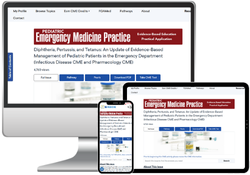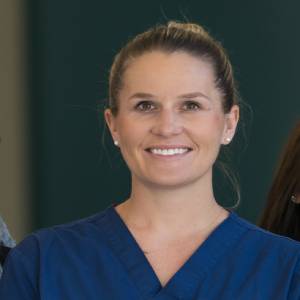Pediatric Emergency Medicine Practice
The Most Trusted Pediatric Resource
for Emergency Clinicians
Why Pediatric Emergency Medicine Practice
For more than 25 years, EB Medicine’s medical journals have delivered concise, practical, peer-reviewed evidence you can apply immediately in the ED.
Thousands of emergency medicine clinicians say Pediatric Emergency Medicine Practice improves their quality of patient care. That’s because we focus on what matters most—clear recommendations, trusted research, and practical tools tailored specifically to pediatric patients.
Each monthly issue takes you inside a single pediatric topic—from presentation to disposition—with evidence-based strategies you can use on shift. Topics include:
- Gunshot wounds, trauma, and resuscitation in children
- Respiratory emergencies
- Pediatric airway management
- Febrile neonates and infants
- Pediatric sepsis and infectious disease
- Neurologic emergencies such as seizures and concussions
- Toxicology and ingestions
- Child abuse and nonaccidental trauma
Every article is written and rigorously peer-reviewed by practicing pediatric emergency physicians and general emergency physicians who care for children. All content meets the stringent standards required of MEDLINE-indexed journals—so you know you’re getting recommendations you can trust. Unlike other CME sources, Pediatric Emergency Medicine Practice is free from advertising and commercial bias. Every issue is focused on one thing—helping you provide better care for children.
Beyond the research, what sets Pediatric Emergency Medicine Practice apart is our focus on translating evidence into action. Pediatric patients are not small adults—our decision aids, risk-management pitfalls, tables, and figures are designed to streamline age-specific choices under pressure. Whether it’s stabilizing a febrile infant, managing pediatric head trauma, or making a safe discharge decision, these tools connect the latest evidence to the realities of pediatric emergency care in a way no generic CME program can.














































